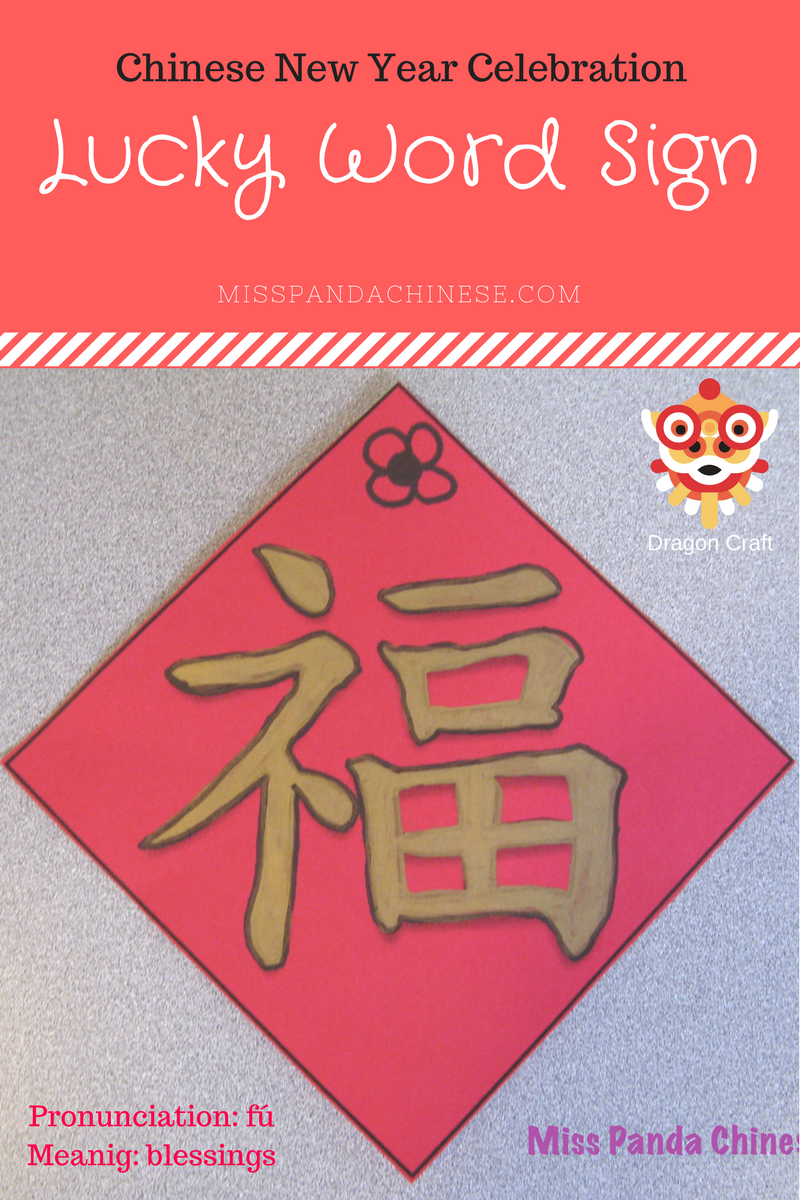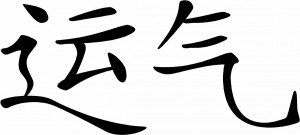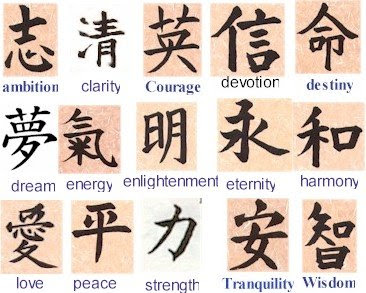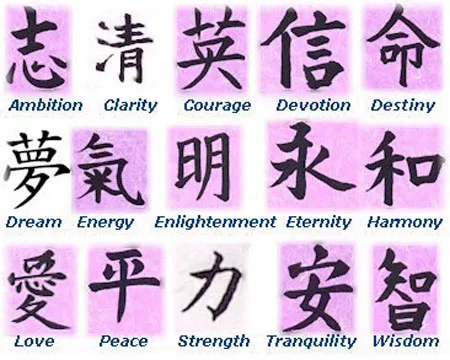Chinese Lucky Letters

- Lucky's Chinese Restaurant
- Chinese Lucky Letters Printable
- Chinese Lucky Letters Free
- Chinese Lucky Letters 2019
- Chinese Lucky Letters List
May 5, 2020 - Explore Claudia Maritza Sanchez's board 'Good luck Chinese alphabet' on Pinterest. See more ideas about chinese symbols, chinese symbol tattoos, chinese tattoo. Chinese Character and Calligraphy Worksheets for Kids. Children learn the correct stroke order for numbers 1–10 in Chinese with this practice worksheet and template. Click the checkbox for the options to print and add to Assignments and Collections. Children learn the Chinese words for a variety of types of weather in this introductory worksheet.
Luck is a huge part of Chinese culture.
It underlies Feng Shui, gift-giving etiquette, unlucky numbers and colors of prosperity and vitality.
So it may come as no surprise that there are many different ways to wish someone “good luck” in Chinese for the different areas of their life.
Whether someone just started a new job, is getting married or has an exam coming up, there are distinct phrases you can use to wish them good fortune (while impressing them with your native-sounding language skills).
Here are 30 of the most important ways to say good luck in Chinese for everyday events as well as big life changes.
Download: This blog post is available as a convenient and portable PDF that youcan take anywhere. Click here to get a copy. (Download)
Wondering how you’ll ever learn all these phrases’ meanings and usages? FluentU is the best tool for building your Chinese vocabulary in real-world contexts.
Each video comes with interactive captions, flashcards, exercises and transcripts so you actively learn while you watch. You can also click any word or expression to see other videos that have it, which will help you naturally learn how to use it in any context.
Good Luck for Everyday Situations
To reiterate, the way you say good luck in Chinese depends on the context and audience, but there is, in fact, a literal equivalent to the Western idea of wishing someone good luck, as shown below.
祝你好运!(zhù nǐ hǎo yùn!) — (I wish you) Good luck!
As you can see, this is a direct translation of “good luck.” The verb 祝 (zhù) means “to wish,” 你 (nǐ) means “you,” 好 (hǎo) is “good” and 运 (yùn) is “luck.”
This is as straightforward as it gets, but it’s not used very often because it sounds “too translated.” Native speakers prefer to use other phrases to wish someone luck, with each one catering to specific situations.
For example, to wish someone luck on a test or exam, it’s better to say:
好好儿考啊!(hǎo hǎo er kǎo a!) — Have a good exam/Do well on this exam!
When you want to wish someone luck on another kind of task or job, you can say:
好好儿干啊!(hǎo hǎo er gàn a!) — Do well on this task/job!
There’s another phrase you can use for words of encouragement, similar to “good luck,” which is more of an idiomatic expression. 加油 (jiā yóu), which literally means “add oil,” is a figurative expression that best translates to “come on, let’s go!”
To use that in a sentence, you can say something like:
我为你加油!(wǒ wèi nǐ jiā yóu!) — I’m cheering for you!
我给你加油!(wǒ gěi nǐ jiā yóu!) — I will cheer for you!
These examples and the phrase 加油 (jiā yóu) can be used in many instances, but are more common in competitive situations.
Blessings for Newlyweds
Know any couples that just got hitched? “Good luck” is normally not a blessing to share with the bride and groom, but there are other ways that you can wish them well.
You can never go wrong with a generic greeting, whether you’re friends with the newlyweds or more along the lines of acquaintances. Try these out:
祝你们幸福。(zhù nǐ men xìng fú) — I wish you happiness.
祝你们百年好合。(zhù nǐ men bǎi nián hǎo hé) — I wish you a long life together. (Literally, “I wish you all the best for next 100 years together.”)
祝你们幸福美满。 (zhù nǐ men xìng fú měi mǎn) — I wish you happiness and bliss.
祝你们新婚愉快。(zhù nǐ men xīn hūn yú kuài) — I wish you a happy marriage/wedding.
Lucky's Chinese Restaurant
Most examples above (except for the first) can be uttered without 祝你们 (zhù nǐ men), since they’re actually expressions on their own. Plus, it’s a given that you’re extending the wish to the couple.
So, it’s perfectly fine to say 新婚愉快 (xīn hūn yú kuài), but we included 祝你们 (zhù nǐ men) for the sake of demonstrating sentence structure.
Now, if you’re close with couple, here are some additional idiomatic expressions you can share with them. Feel free to add in 祝你们 (zhù nǐ men) at the beginning of each expression if you prefer.
白头偕老 (bái tóu xié lǎo) — May you grow old together (Literally, “Live together until your hair goes white with old age”)
多子多孙 (duō zi duō sūn) — May you have many children and grandchildren
举案齐眉 (jǔ àn qí méi) — May you have mutual respect in marriage (Literally, “Lift the tray to eyebrow level”)
互敬互爱 (hù jìng hù ài) — May you have mutual respect and love
激情永在 (jī qíng yǒng zài) — May you have everlasting passion (Literally, “Passion is always there”)
早生贵子 (zǎo shēng guì zǐ) — May you give birth to a child soon
The original meaning of the last one actually is about giving birth to a son, so it’s best to reserve the last wedding wish for traditional Chinese couples and families. Or just opt for any of the other idioms.
Birthday Wishes
Birthdays are another occasion where you can wish people good fortune. Other than saying “Happy Birthday,” which is 生日快乐 (shēng rì kuài lè) in Chinese, you can share the following hopes for the celebrant.
For the kids:
希望你健康快乐地长大!(xī wàng nǐ jiàn kāng kuài lè dì zhǎng dà!) — I hope you grow up happy and healthy!
For your peers:
祝你天天快乐,心想事成。(zhù nǐ tiān tiān kuài lè, xīn xiǎng shì chéng.) — I wish that you’re happy every day, and that all your wishes come true.
For the elderly:
Chinese Lucky Letters Printable
长命百岁 (cháng mìng bǎi suì) — May you live for 100 years
寿比南山, 福如东海 (shòu bǐ nán shān, fú rú dōng hǎi) — May you live as long as Southern Mountain and your fortune be as boundless as the Eastern Sea

The last one is very poetic and very popular among the older generations.
Wishes for Success, Prosperity and Good Fortune
Weddings and birthdays aren’t the only times you can send good wishes.
If a friend just got hired, you can wish them luck at the new job by saying:
财源广进 (cái yuán guǎng jìn) — May you have an abundant source of income, wealth and fortune
平步青云 (píng bù qīng yún) — May you get promoted quickly (Literally, “Skyrocket”)
马到成功 (mǎ dào chéng gōng) — May you immediately meet with success
步步高升 (bù bù gāo shēng) — May you continuously get promoted (Literally, “Rise step by step”)
What you’d normally hear and say during Chinese New Year can also be used in a congratulatory sense, wishing someone luck in any future endeavor, whether business-related or not. It can even be included in a toast.
恭喜发财 (gōng xǐ fā cái) — Happy New Year/May you be prosperous
During the New Year, a birthday, a holiday or any other celebration, you can say:
Chinese Lucky Letters Free
身体健康 (shēn tǐ jiàn kāng) — I wish you good health (Literally, “healthy body”)
To wish someone happiness in everyday situations, you can say, “Bless you,” although this shouldn’t be confused with how English speakers use that phrase after someone sneezes.
祝福你!(zhù fú nǐ!) — Bless you! (Literally, “I wish happiness/good fortune on you!”)
And if you’re bidding someone adieu, you can say:
保重!(bǎo zhòng!) — Take care!
一路顺风! (yī lù shùn fēng) — Bon Voyage! (Literally, “May the wind be with you!”)
This list is probably more than enough for you to impress Chinese-speaking friends and family. You’ll sound like a native when you wish people luck using any of these expressions!
Download: This blog post is available as a convenient and portable PDF that youcan take anywhere. Click here to get a copy. (Download)
And One More Thing...
If you want to continue learning Chinese with interactive and authentic Chinese content, then you'll love FluentU.
FluentU naturally eases you into learning Chinese language. Native Chinese content comes within reach, and you'll learn Chinese as it's spoken in real life.
FluentU has a wide range of contemporary videos—like dramas, TV shows, commercials and music videos.
FluentU brings these native Chinese videos within reach via interactive captions. You can tap on any word to instantly look it up. All words have carefully written definitions and examples that will help you understand how a word is used. Tap to add words you'd like to review to a vocab list.
FluentU's Learn Mode turns every video into a language learning lesson. You can always swipe left or right to see more examples for the word you're learning.
The best part is that FluentU always keeps track of your vocabulary. It customizes quizzes to focus on areas that need attention and reminds you when it’s time to review what you’ve learned. You have a 100% personalized experience.
Start using FluentU on the website with your computer or tablet or, better yet, download the FluentU app from the iTunes or Google Play store.
If you liked this post, something tells me that you'll love FluentU, the best way to learn Chinese with real-world videos.
Although nowadays beliefs in lucky and unlucky numbers are often regarded as superstitious, millions of Chinese people, from various social and ethnic groups, still hold such beliefs. A number is an important tool in accessing Chinese culture. Knowing the implicit meanings behind numbers will not only help you explain some unique situations in Chinese society but will also lead you to the wellspring of ancient Chinese wisdom.
Chinese Lucky Numbers For 2021
Numbers in China range between auspicious and ominous mainly depending on the similarity between its pronunciation and that of another word that carries a positive or negative connotation.
For example, the most commonly used Chinese New Year lucky numbers are 6 and 8, because 6 is similar to “溜 liu” in Chinese, meaning “smooth”, so 66 means “everything goes well”; 8 is lucky as well because its pronunciation is similar to that of the word “发 fa” in “发财”, which means to make a fortune.
| Number | 2 | 4 | 6 | 8 | |
|---|---|---|---|---|---|
| Chinese | 一 | 三 | 五 | 七 | 九 |
| Pronunciation | èr | sì | liù | bā | |
| Lucky or Not | Neutral | Neutral | Neutral | Unlucky | Lucky |
What are the Chinese Luckiest Numbers?
2 Uses in China
2, pronounced “er”, is considered lucky because “all good things come in pairs”. The theory of Chinese Feng Shui posits that the TWO features yin and yang are complementary forces of all things in the world. Among young people in China, number two has become a popular adjective to describe frank, innocent, reckless personality. They believe “er” reflects a positive attitude towards life.
- In a traditional Chinese wedding, the new couple’s house and the restaurant will be decorated with 囍 paper-cuts, symbolizing double-luck.
- “Er bai wu” is Chinese for “two hundred and fifty”. On most occasions, it is not used to praise, but to refer to someone as stupid. This is unrelated, however, to the general luckiness of the number 2.
6 Uses in China
6 is pronounced “liu” in Mandarin Chinese, and this sounds like the Mandarin Chinese word meaning “flowing, smooth, or frictionless”. Therefore, the number 6 has the meaning of “everything will go smoothly” and is considered lucky especially where it occurs in multiples. In feng shui, the number 6 represents authority and power.
- A license plate with the number 66666 can be worth millions in China.
- Young Chinese netizens widely use “666” to express admiration for people or things.
8 Uses in China
8 is considered the luckiest lucky in Chinese culture, because as mentioned above, in Mandarin Chinese, the pronunciation of “eight” is close to that of the phrase meaning “to make a fortune”. The number 8 is also uniquely symmetric, and when laid on its side, resembles the Greek symbol for infinity.
- Chinese people tend to prefer the number 8 when buying a house, license plate, or telephone number, even if it means paying extra money.
- The Chinese government complied with euphoria over the number 8 in the year of the Olympic Games, 2008: the opening ceremony of the Summer Olympics in Beijing began on the eighth of August (08/08/08), at precisely 8 minutes and 8 seconds past 8 PM, local Beijing time!
- Bagua (八卦) literally means Eight Symbols. People now use it to refer to personal information. It can also describe someone who likes gossip.
9 Uses in China

9 is considered especially propitious. This is partly due to the fact that the pronunciation of “nine” is close to that of the word “long-lasting” in Chinese. So the couples would be glad to get wedding gifts containing the number 9, like a bouquet of 99 roses, which has an auspicious meaning of “have a long-lasting happy life together”.
Chinese Lucky Letters 2019
In feng shui, 9 is highest on the number scale and represents the “ultimate masculinity”. It used to symbolize the supreme sovereignty of the emperor. So 9 or some multiple of 9 were often used in imperial house designs, like the 9,999 rooms in the Forbidden City.
Chinese Lucky Number Combinations
Chinese people love to use lucky number combinations to express their wishes or emotions.
- 168 (li liu ba) sounds like 一路发 (yi lu fa), meaning “making a fortune all the way”.
- 520 (wu er ling) is like 我爱你 (wo ai ni), which means “I love you”.
- 1314 (yi san yi si) represents 一生一世 (yi sheng yi shi) in Chinese, meaning “throughout one’s life, which is often combined with 520 to say 5201314, “I love you forever”.
- 666 and 888 are often the cash quantity of the Red Envelope during Chinese New Year, as a blessing from the elders to the younger generations, which hopes that they will have a smooth and successful life.
Chinese Zodiac Lucky Numbers
Chinese zodiac, known as Sheng Xiao (生肖) in China, consists of the 12 animal signs designated to the 12 earthly branches in China. The zodiac animals in order are the Rat, Ox, Tiger, Rabbit, Dragon, Snake, Horse, Goat, Monkey, Rooster, Dog, and Pig, calculated according to Chinese Lunar New Year based on a twelve-year cycle. Each of the animal signs has its own lucky numbers.
| Zodiac | Years | Lucky Numbers |
| Rat | …1984, 1996, 2008, 2020… | 2, 3 |
| Ox | …1973, 1985, 1997, 2009… | 1, 9 |
| Tiger | …1974, 1986, 1998, 2010… | 1, 2, 3 |
| Rabbit | …1975, 1987, 1999, 2011… | 3, 7 |
| Dragon | …1976, 1988, 2000, 2012… | 1, 6, 7 |
| Snake | …1977, 1989, 2001, 2013… | 1, 6 |
| Horse | …1978, 1990, 2002, 2014… | 2, 3, 7 |
| Goat | …1979, 1991, 2003, 2015… | 3, 4, 9 |
| Monkey | …1980, 1992, 2004, 2016… | 4, 6 |
| Rooster | …1981, 1993, 2005, 2017… | 5, 7, 8 |
| Dog | …1982, 1994, 2006, 2018… | 3, 4, 9 |
| Pig | …1983, 1995, 2007, 2019.… | 2, 5, 8 |
Unlucky Numbers: Avoid Them if Possible
4 in China
4 in China (and in Korea, Japan, and Vietnam) is considered terribly unlucky because it sounds like the word for “death”. It is really a bad idea to assign the number 4 to anything. Generally, door numbers and car registration numbers do not contain any 4s, especially not in the last digit-place.
Although the number 4 is replete with ominous overtones, it still crops up in various contexts in China. For example:
- Four popular plants in Chinese painting: plum blossoms, orchids, bamboo, chrysanthemum.
- Four classic novels of ancient China: A Dream of Red Mansions, Romance of the Three Kingdoms, Water Margin, Journey to the West.
- Mah-jong, one of the most popular Chinese games, needs four players.
- Four Famous Buddhist Mountains: Mt. Wutai in Shanxi, Mt. Putuo in Zhejiang, Mt. Emei in Sichuan, Mt. Jiuhua in Anhui.
7 in China
7 is a yang number and its pronunciation in Chinese is close to the pronunciation of the word meaning gone (去qu). 7 also relates to ceremonies that release dead souls from purgatory. In some parts of China, the 14th or 15th of the 7th month in the Chinese lunar calendar is the Ghost Festival, the date for holding sacrificial ceremonies.

Neutral Numbers: Safe Numbers
1- is a yang number associated with wood and with the east. It is often associated with the meanings united, beginning, independent, complete, and infinite.
3- is a yang number associated with water and with the north. In feng shui, 3 has a natural resonance in terms of beginning, middle, and end; introduction, development, and conclusion. You can see this number widely used in Chinese culture: the Three Gorges, the Three Kingdoms in Chinese history, and the three halls of the Forbidden City in Beijing.
5- has been used to classify many things in Chinese, such as the five elements in astrology, the senses, and the basic colors. It is a neutral number. In feng shui, the 5th level of life sometimes means the best.
Chinese Numerology: Number Symbolism in Chinese Culture

- 1 means only, unity, whole.
- 2 means double, harmony.
- 3 means many, stability.
- 4 means death.
- 5 means me or I.
- 6 means smooth, good luck.
- 7 means holiness, mystery.
- 8 means wealth, success.
- 9 means longevity, eternality.
Lucky Numbers and Beijing’s Top Attractions
The number 9 used to symbolize the supreme sovereignty of the emperor. So 9 or some multiple of 9 can be easily found in Beijing’s imperial architectural designs.
The Forbidden City, Abode of Chinese Emperors
According to legend, the Forbidden City in Beijing has 9,999 rooms (in reality, it has only 8,704, according to a study in 1973). The number 9,999 is understandable in the light of the tradition that only the gods had the right to build a palace with 10,000 rooms. Human beings tried to get as near as possible to their ideal of perfection.
The Temple of Heaven, a Place for Worshiping God
You can find the number 9 everywhere in the construction of the Temple of Heaven: in the number of steps, balustrades, circles of paving stones, nails on doors and especially in the design of the Circular Mound Altar 圜丘坛 (Yuánqiū Tán), where a single round marble plate is surrounded by a ring of nine plates, and then a ring of 18 plates.
Chinese Dragon
Chinese dragons are often associated with the number 9. For example, a Chinese dragon is generally described in terms of nine attributes and usually has 117 scales – 81 (9x9) males plus 36 (9x4) females. There are nine forms of the dragon and the dragon has nine children. There is a famous Nine-Dragon Screen in the Forbidden City.
Seventeen-Arch Bridge in Summer Palace
Chinese Lucky Letters List
Numerical sensitivity led to the design of an elegant bridge in the Summer Palace. The bridge has 17 arches, the sum of 9 and 8, characterized by a gradual reduction in the size of the arches. A Chinese architect would never suggest a four-arch bridge. You can find many numerically neat bridges in southern cities like Hangzhou, Suzhou, and Guilin.
Feel free to contact us if you want to visit Beijing to really experience the interesting numerology in China’s imperial architecture.
Back to China Travel Guide